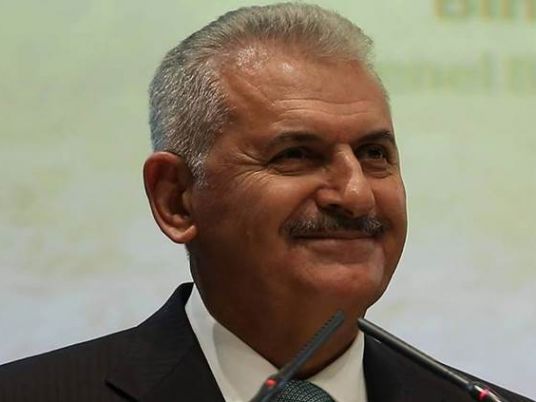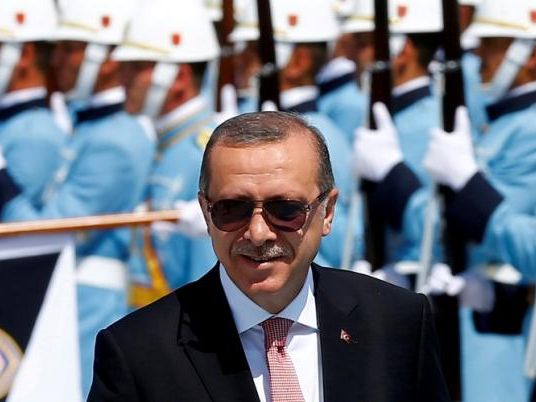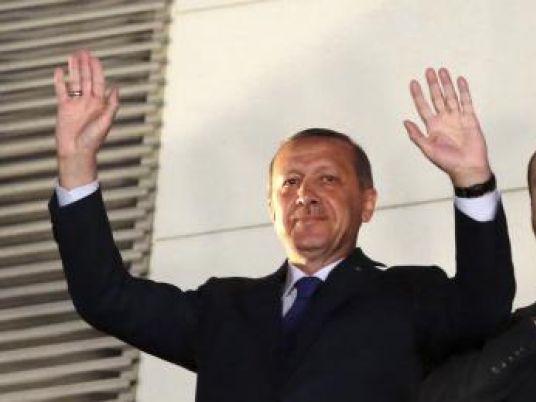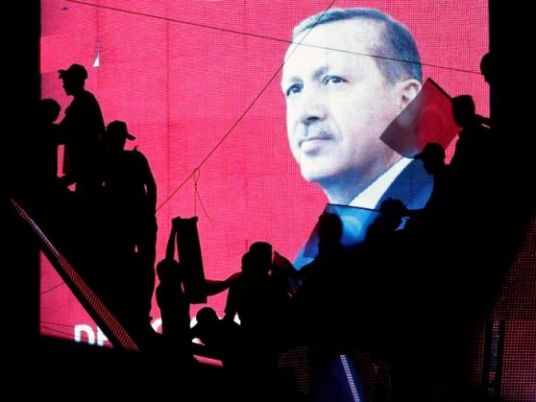The media circus prompted by Turkish Prime Minister Recep Tayyip Erdogan’s visit to Egypt demonstrates how Mubarak’s legacy still lingers, despite his absence from the political scene. The naivety and superficiality of the questions posed to Erdogan at interviews conducted during his two-day visit to Egypt also reveal a horrendous media vacuum.
Furthermore, thrusting Erdogan into the current debate over the Islamist-civil-state divide, as if he were an active participant in it, exposes our deficient understanding of the Turkish experience.
The fact that some Islamists received Erdogan as the new savior of Muslims demonstrates their rudimentary knowledge of the Turkish model, which put Erdogan in prison for reciting religious poems from the Ottoman heritage at a political conference.
Then when Erdogan emphasized the secular nature of his Turkish state, Egypt’s Islamists turned against him and accused him of interference in Egyptian affairs.
In Tunisia, however, civilian Islamist currents received Erdogan well because they share the same democratic and civil values as him, even if they hold on to their Islamic frame of reference.
At a gala dinner party to which political and other public figures were invited, the Turkish PM was asked for advice on the role of the military. Erdogan did not attack the Turkish army in his answer because he went through a real battle on the ground to find a balance of power between the army and his own party. Egyptians, meanwhile, are addressing the role of the military in a way that could lead the military to remain longer in power.
Erdogan was also asked about the “Second Turkish Republic” that he is establishing. Even though this was a good question, Erdogan’s Justice and Development Party government considers itself an extension of the Turkish Republic established by Mustafa Kemal Atatürk, rather than as the founder of a new Turkish Republic.
Even though Turkey may have seen the most important economic and political reforms under Erdogan’s premiership, Erdogan refuses to provoke other secular trends by stating that he is establishing a second republic, as opposed to Atatrük’s republic.
Simply put, Erdogan is saying that achievement is more important than points of reference and grand ideologies, which classify people as Islamist or secular.
At a press conference held 10 years ago in Istanbul, the leaders of Islamist parties were asked about their wishes for the future. Some said they wanted Palestine to be liberated, while others talked about fighting secularism. Erdogan, who was then the mayor of Istanbul, said he wanted to remove the trash littering his city.
Erdogan started his reform journey from a point we fail to see and ended up where we would like to be.
Translated from the Arabic Edition




